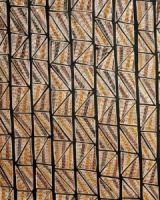Early childhood education – preschool attendance among Indigenous 3-year-olds

Abstract
There is much evidence of the benefits of 2 years of early childhood education, but relatively little research focusing specifically on the benefits to Aboriginal and Torres Strait Islander children. Australian governments are currently committed to providing universal access to early childhood education in the year before full-time school, articulated in the first National Partnership Agreement on Early Childhood Education (NPECE), which was signed by the Council of Australian Governments in 2008. The most recent Closing the Gap target relating to Aboriginal and Torres Strait Islander children’s participation in early childhood education aligned with this national approach. Ten years on from the first NPECE, there have been calls to extend universal access to early childhood education to include children 2 years before they start school (generally, when childrenare aged 3–4 years).
Many Australian children of this age already participate in early learning in formal child-care settings or through ‘3-year-old preschool’ programs directed towards particular cohorts. In this paper, we examine preschool participation among Indigenous 3-year-olds. By ‘preschool participation’, we mean participation in a quality early childhood education program, regardless of whether the program is delivered in a dedicated preschool service or in another setting such as a long day-care centre, as defined in the NPECE.







